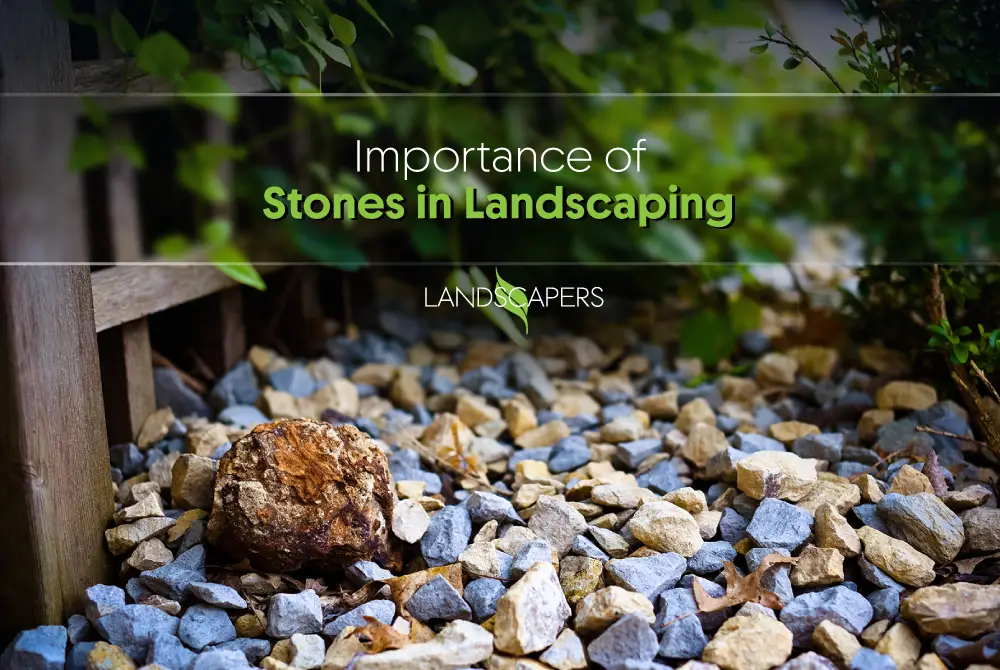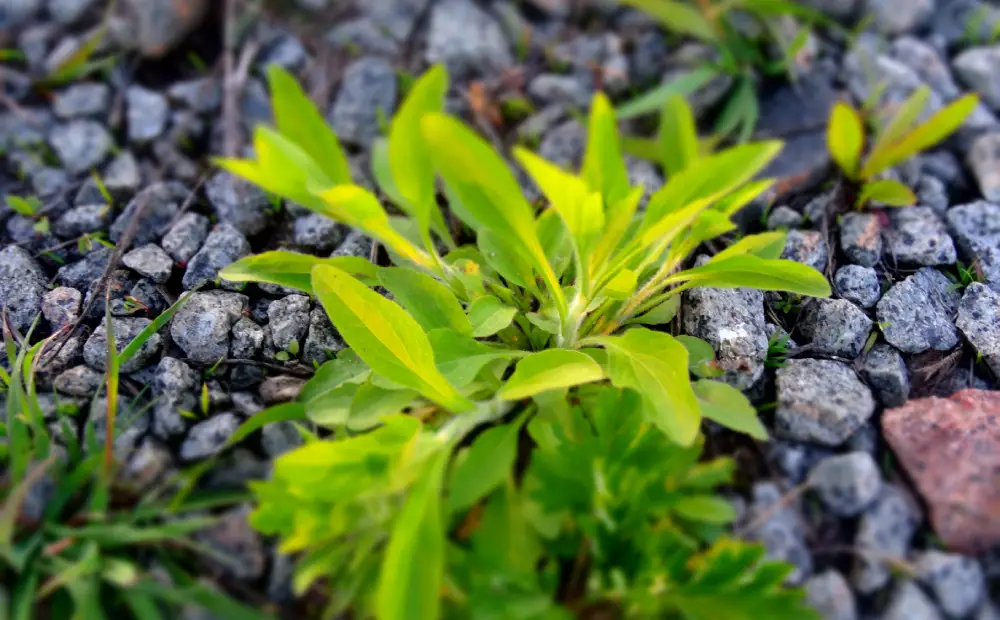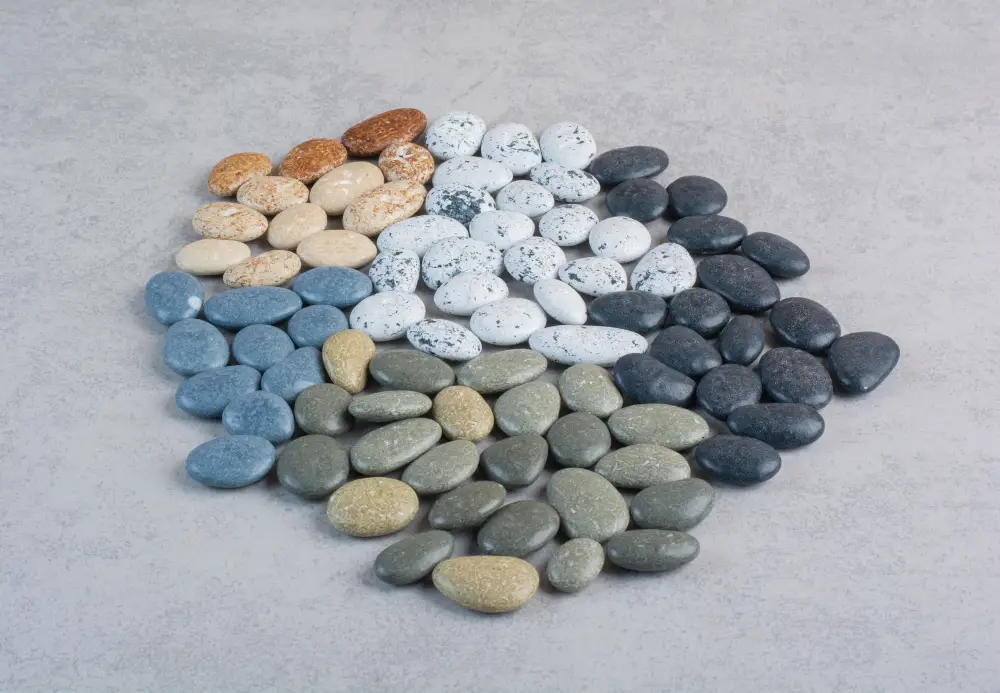
The Importance of Different Types of Stones Used in Landscaping
In the world of landscaping, stones play a role far beyond simple decoration. They are the backbone of many outdoor designs, offering structure, texture, and long-lasting beauty to gardens, patios, and open spaces. Whether used for pathways, retaining walls, water features, or decorative accents, different types of stones bring unique qualities that can completely transform the look and feel of an outdoor area.
In modern landscape design, stones are valued not only for their durability but also for their ability to blend functionality with aesthetics. The right choice of stone can create harmony with surrounding greenery, add contrast, and even improve the functionality of a space.
Let’s explore why stones are so important in landscaping, the different types commonly used, and how each contributes to creating an attractive and sustainable outdoor environment.
Why Stones are Vital in Landscaping

- Durability and Longevity
Stones can withstand harsh weather conditions, making them ideal for outdoor use. Unlike wood or synthetic materials, they do not rot, fade, or get easily damaged.
- Versatility in Design
From sleek, modern patios to rustic garden pathways, stones offer endless possibilities in landscape design. They can be cut, polished, or left natural depending on the desired style.
- Low Maintenance
Once installed, most stones require minimal upkeep. Occasional cleaning and sealing are enough to keep them looking good for years.
- Environmental Benefits
Stones are a natural material that can help with soil erosion control, water drainage, and even temperature regulation in certain areas.
Popular Types of Stones Used in Landscaping
- Granite
Granite is one of the most durable and widely used stones in landscape design. Known for its strength and resistance to weathering, it is ideal for pathways, patios, and retaining walls.
Advantages:
- Highly durable and scratch-resistant
- Available in various colors and textures
- Can be polished for a sleek look or left rough for a natural appeal
Best Uses in Landscaping:
- Driveways
- Outdoor kitchen countertops
- Garden pathways
- Sandstone
Sandstone is valued for its warm, earthy tones that add a natural charm to landscaping projects. It is softer than granite, making it easier to shape and work with.
Advantages:
- Natural anti-slip surface, perfect for wet area
- Beautiful range of beige, brown, and red shades
Weather-resistant
Best Uses in Landscaping:
- Paving around pools
- Garden walls
- Stepping stones
- Limestone
Limestone offers a softer, more muted aesthetic, making it perfect for elegant and minimalist landscape design. Its uniform texture allows for precise cutting and shaping.
Advantages:
- Naturally cool underfoot, ideal for hot climates
- Can be carved into intricate designs
- Available in neutral shades like cream, grey, and white
Best Uses in Landscaping:
- Patios and courtyards
- Water features
- Garden borders
- Slate
Slate is a fine-grained, layered stone that offers a unique, natural texture. It is often chosen for its rich colors and slip-resistant surface.
Advantages:
- Distinctive, rustic appearance
- Naturally slip-resistant
- Available in dark tones like black, grey, and green
Best Uses in Landscaping:
- Garden walkways
- Outdoor staircases
- Decorative wall cladding
- Marble
Marble brings a luxurious touch to landscape design. Though more commonly associated with interiors, it is increasingly used outdoors for its elegance.
Advantages:
- Smooth, polished finish for a high-end look
- Naturally reflective, brightening outdoor spaces
- Timeless and elegant appeal
Best Uses in Landscaping:
- Decorative garden sculptures
- Fountains
- Accent features in patios
- Pebbles and River Stones
Pebbles and smooth river stones are excellent for decorative accents. They add texture and color while helping with drainage and weed control.
Advantages:
- Affordable and versatile
- Available in a variety of shapes, colors, and sizes
- Low maintenance
Best Uses in Landscaping:
- Mulching garden beds
- Lining water features
- Creating Zen gardens
- Basalt
Basalt is a dense volcanic stone that is highly durable and weather-resistant. It works well in modern and contemporary landscape design.
Advantages:
- Sleek, dark appearance
Extremely strong and long-lasting - Resistant to heavy wear and tear
Best Uses in Landscaping:
- Modern pathways
- Retaining walls
- Garden steps
How to Choose the Right Stone for Your Landscape Design

When selecting stones for landscaping, it’s important to consider more than just appearance. Here are some tips to guide your choice:
- Purpose of the Stone
Are you using it for decoration, structural support, or both? For example, granite is ideal for load-bearing structures, while pebbles are better for decorative purposes.
- Climate Considerations
Some stones, like sandstone, are more porous and may not be suitable for areas with heavy rainfall unless sealed.
- Maintenance Requirements
While most stones are low-maintenance, polished stones may need periodic sealing to maintain their shine.
- Budget
Natural stones vary widely in price. Granite and marble tend to be more expensive, while limestone and pebbles are more budget-friendly.
- Aesthetic Goals
Match the stone’s color and texture with the overall theme of your landscape design — rustic, modern, tropical, or minimalist.
The Role of Stones in Sustainable Landscaping
Beyond aesthetics, stones contribute to sustainable landscape design. They can help with:
- Erosion Control: Retaining walls and stone borders prevent soil erosion in sloped gardens.
- Water Management: Gravel and pebbles improve drainage and reduce waterlogging.
- Temperature Regulation: Certain stones help keep outdoor areas cool in hot weather.
Using locally sourced stones can also reduce environmental impact and support local suppliers.
Stones are one of the most timeless and versatile elements in landscaping. Each type — from rugged granite to smooth river pebbles — offers unique benefits and design possibilities. By understanding their properties and uses, you can create a landscape design that is not only visually appealing but also functional and long-lasting.
Whether you are building a cozy garden retreat, a grand outdoor entertainment area, or a minimalistic modern yard, the right stones can elevate your design and ensure it stands the test of time. In the art of landscape design, stones truly are the foundation upon which beauty and practicality meet.

